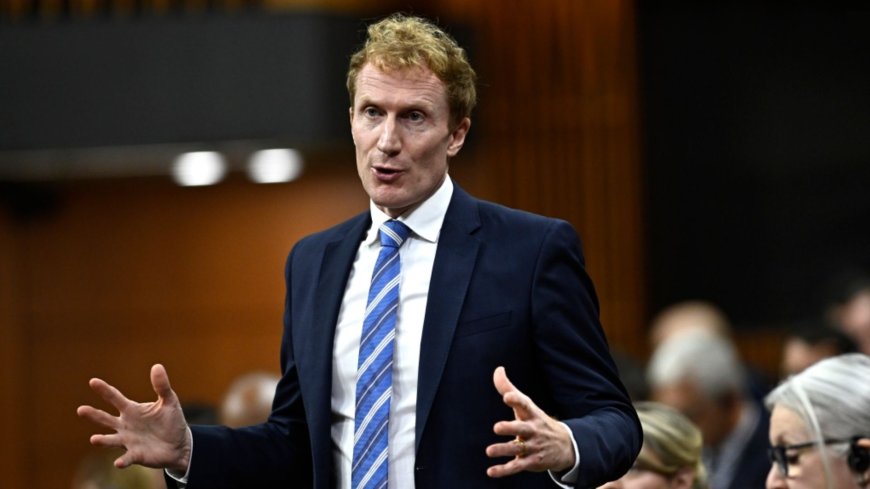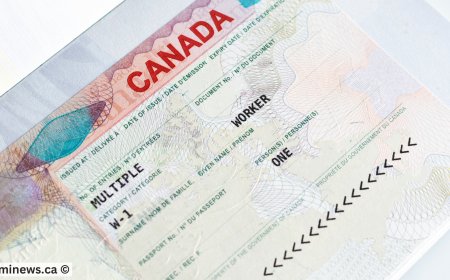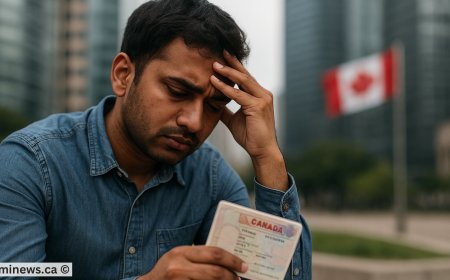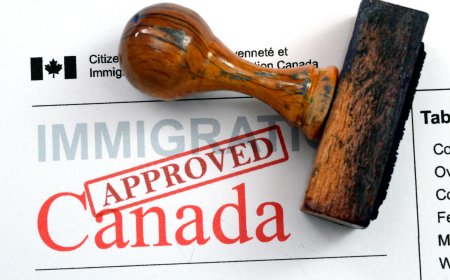Ottawa Split on Undocumented Migrants Plan | Canada Immigration Updates
Immigration Minister Marc Miller announces ongoing discussions and significant opposition within the government regarding a program to regularize undocumented migrants in Canada. Learn more about the proposal and its implications.

Immigration Minister Marc Miller states that a federal program to grant undocumented migrants the right to stay in Canada is not imminent, as cabinet discussions continue amid significant opposition.
The proposal, which includes allowing rejected asylum claimants and former international students with expired study permits to apply to remain in Canada, was presented to the cabinet before MPs began their summer recess. However, Miller emphasized that no conclusion has been reached, and it may take months before any decision is made.
“There is no agreement within the government on the program yet,” Miller said, acknowledging the divergent views among his colleagues. Some of the most staunch opposition comes from unexpected quarters, he noted.
Under the proposed plan, undocumented migrants, including those with Canadian-born children who have lived in Canada for several years, could apply for permanent residence. The idea aligns with Prime Minister Justin Trudeau's mandate to former immigration minister Sean Fraser in 2021 to explore ways of regularizing the status of undocumented workers contributing to Canadian communities.
While a cabinet decision was anticipated this spring, Miller indicated that the program would not be rolled out soon. Public opinion remains divided on the issue, with recent polling reflecting this split.
“If there is a clear conclusion, I will communicate it to Canadians, but there isn’t one right now,” Miller said. “Ongoing discussions are happening, and it’s not something I expect to be rolled out in the short term.”
Over the past year, public support for immigration has declined. In response, Miller has capped immigration targets at 500,000 for 2026 and introduced a limit on international students. Estimates suggest that between 300,000 to 600,000 people might be living in Canada without valid documents, although the exact number is unknown.
Lisa Lalande, CEO of the Century Initiative, highlighted the challenges posed by the uncertain number of undocumented workers for planning and integrating these individuals into the economy.
Miller clarified that the proposed program would not cover all undocumented individuals in Canada. However, he stressed that providing long-term undocumented residents a path to permanent residence is a matter of fairness and economic sense.
“I believe it is the right thing to do from an economic and humanitarian perspective. It’s just smart,” he said, noting that it would allow undocumented parents of Canadian-born children to stay, aligning them with their children’s status.
Despite misconceptions equating the program to “queue-jumping,” Miller emphasized that educating Canadians about the proposal tends to increase support.
Several other countries have introduced similar programs to protect undocumented migrants from deportation. For instance, Ireland launched a program in 2022 allowing individuals who had lived there for four years to apply for permission to remain. Recently, U.S. President Joe Biden announced that undocumented spouses of American citizens could apply for permanent residency without leaving the country.
In Canada, over 20 labor organizations, including the Canadian Labour Congress, along with migrant groups, churches, and the New Democratic Party, support a broad regularization program.
Syed Hussan, spokesperson for the Migrant Rights Network, noted that undocumented individuals in Canada face significant barriers, such as being unable to open bank accounts or buy cars on credit. He predicted that regularizing their status would inject billions into the economy.
Hussan expressed disappointment over the delay in reaching a decision and warned that for the program to be implemented before the next general election in October, there could be no further delays. Setting up the program and allowing sufficient time for applications would take several months.
Tourism Minister Soraya Martinez Ferrada, a former refugee from Chile, pointed out that undocumented individuals living “in the shadows” in Canada do not make economic sense. “You want these people to contribute to the system,” she said.
What's Your Reaction?
 Like
0
Like
0
 Dislike
0
Dislike
0
 Love
0
Love
0
 Funny
0
Funny
0
 Angry
0
Angry
0
 Sad
0
Sad
0
 Wow
0
Wow
0









































































